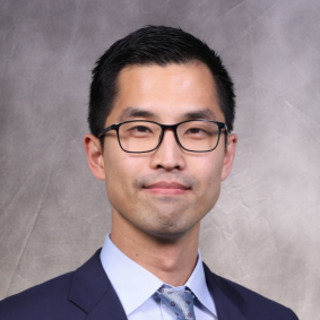The patient needed a leg amputation. Its blood flow was compromised, causing gangrene to set in. If left alone, worsening muscle death and infection would be lethal within days. The team was certain of it.
Despite all of the facts and numbers we cited, the patient’s decision stood firm; the leg would not come off. “Some things are more important than living longer,” the patient said, referencing dignity and spirituality.
I recall feeling perplexed and frustrated. To a cardiac surgery resident training to conquer death and diseases, what could be a more important goal in life than to live longer?
One morning several weeks later, the topic resurfaced in a group conversation I had about the rigorous process involved in becoming a surgeon. To some, the degree of sacrifice required seemed irrational: Why would anyone want to spend their youth training, all the while delaying their income, damaging their health, foregoing time with family, and losing flexibility in their schedule, in pursuit of a career? In other words, what could be more important than living longer, making more money, or spending time with family?
I found myself thinking the answer was rather obvious. Some things were more important than all of those conventional concerns. There was a distinction to be made between living longer and living fulfilled. In this matter, I felt as if I had no choice at all, just like my patient who refused to get a leg amputation.
There is a lot of emphasis in society, and especially in medicine, on making rational choices. These choices are often framed to maximize objective measures of well-being, such as longevity, money, happiness, or quality. We rely on these frameworks to guide our choices every day.
But what if the most important outcome was different from person to person? What if some people valued dignity while others valued comfort? What if some people would give up anything to pursue a career while others would rather die than to lose the ability to walk?
We need to understand where our patients are coming from, instead of simply asserting our belief system. When our patients disagree with our recommendations, we have to be open-minded, not frustrated that we do not see eye-to-eye.
People’s choices may not always seem objective from our perspective, but it does not make them any less true. These decisions are strongly rooted in fundamental belief systems and emotions. Once we understand who our patients are as people and what drives them to live the way they do, we may realize that their choices are perfectly sound and rational from their perspective.
One way I like to remind myself of this lesson is by contemplating these simple questions:
What motivates me to get out of bed each morning? What motivates me to help others? In answering these questions, I realize that some of the truest answers to who I am and why I live the way I do are not rooted in objectivity or reason. The answers are deeply personal, and often fueled by passion.
Some of the best decisions I have made in my life have been irrational. Some of my most important and indefatigable convictions have not and may never be provable with scientific evidence.
I believe that, by and large, people have good intentions. I believe the world is worth “bettering,” even if it requires personal sacrifices. I believe there is value in treating patients with kindness and dignity, even if the outcomes may not always be fair.
As clinicians, what we believe is often just as important as what we know, if not more. And this is where I believe our patients are waiting to meet us.
What (irrational) motivations have you encountered throughout your career?
Jason Han, MD is a thoracic surgeon and was a 2018–2019 Doximity author. He tweets at @JasonHanMD.
Image by Atstock Productions / Shutterstock





